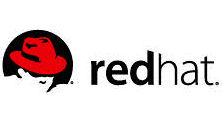
Red Hat has introduced new solutions in its Red Hat Integration portfolio. The new solutions offer new ways of connecting application, data, and devices across hybrid architectures. They include Red Hat AMQ Online, Red Hat AMQ Streams, new connectors for Red Hat Fuse Online, and end-to-end API support.
“Digital transformation is predicated on the notion that software is a source of differentiation for organizations today,” said Mike Piech, vice president and general manager of Middleware at Red Hat. “Companies are striving to improve their ability to deliver new features and services faster. This is what we have designed Red Hat Integration to offer — flexible and powerful integration capabilities, delivered in a unified and familiar package, optimized for hybrid environments. When you can apply this level of agility across the integration lifecycle, and be able to deploy and scale integration to connect assets across hybrid and multicloud environments, it can set the business up to compete more effectively in a changing marketplace.”
Oracle updates its blockchain platform
Oracle has announced new improvements to its blockchain platform. According to the company, these enhancements will help users accelerate the development, integration, and deployment of blockchain applications.
Key new features include an enhanced world state database, rich history database, enhanced REST APIs, identity federation, third-party certificate support, and Hyperledger Fabric 1.3 support.
Android switches its Android Things focus
Android has announced that it is refocusing Android Things to be a platform for OEM partners to build smart speakers and smart displays. As a result, support for production System on Modules based on NXP, Qualcomm, and MediaTek will not be available through the public developer platform.
System images for boards like the NXP i.MX7D and Raspberry Pi 3B will still be available through the Android Things console so that developers can create new builds and push app updates.
IBM launches Code and Response initiative
IBM has announced a new four-year deployment initiative to implement projects developed during Call for Code in the communities where they are needed most. IBM will invest $25 million in this Code and Response initiative.
It will offer resources for building, fortifying, testing, and implementing these solutions at scale. IBM will be partnering with the Information Technology Disaster Resource Center, which will be able to offer guidance in Puerto Rico based on its experience restoring network access there following hurricanes Irma and Maria.
“Generating ideas through challenges is not enough,” said Bob Lord, senior vice president of Cognitive Applications and Developer Ecosystems at IBM. “Every year natural disasters affect close to 160 million people worldwide. To take a huge leap forward in effective disaster response, we must tap into the global open source ecosystem to generate sustainable solutions we can scale and deploy in the field. But we cannot do it alone. It is only by working with venerable partners like the American Red Cross that we will see these technologies really come to life.”
InfluxData raises $60 million in Series D funding
InfluxData has announced a successful Series D funding round of $60 million. It will use these new funds to support further product innovations and will increase its focus on the cloud, building out sales and marketing programs, and customer support needs.
This funding round was led by Norwest Venture Partners, with participation from Sorenson Capital, Sapphire Ventures, Battery Ventures, Mayfield Fund, Trinity Ventures, and Harmony Partners.
“InfluxData’s time series vision is the future of data management,” said Rama Sekhar, partner at Norwest Venture Partners and new InfluxData board member. “Enterprises are experiencing a data revolution with massive increases in volumes of data. InfluxData is empowering enterprises to discover insights about their data by organizing it in the time dimension, a critical approach for use cases such as DevOps observability and IoT analytics. Developer support is also key in this space and the cult-following from the open source community signals a unique vision and value.”






